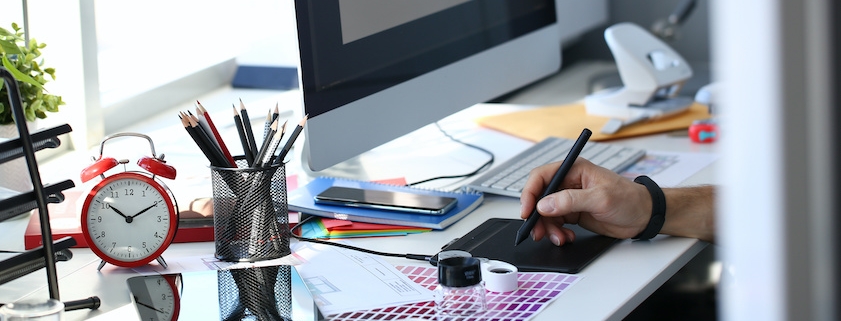7 Best Behavioural Interview Questions for Graphic Designers
There is so much involved in finding the right person to bring on your team. You have to find someone that fits into your culture. You have to find someone that will get along well with the rest of the staff. You have to try to find someone that not only looks good on paper – but also someone that is skilled enough to handle any problems that may come their way.
Take, for example, a graphic designer. You may find a graphic designer that is highly capable of creating amazing pieces. But you’ve never seen them when they’re working. Are they creative, or just technically skilled? Can they complete the work while under pressure or on a deadline? Can they do more than just the artistry of graphic design?
Questions to Ask at the Interview
The job interview is your chance to find out the answers to these questions. But you have to make sure you ask the right questions. “How are you with deadlines?” doesn’t really encourage a detailed, useful answer. Instead, you’ll want to ask specific behavioural interview questions that give you a chance to see how they’ve reacted, or how they would react, in a variety of real life situations. For example:
- Explain, step-by-step, your workflow when working on a tight deadline.
- Describe how you’ve worked with clients who do not know exactly what they want in a design. How did you get started on the project and what steps did you take to assure that the outcome was successful?
- Tell me about a time when you had to change a design that was close to being finished.
- Describe how you would train someone new on creating a business logo for an engineering company.
- Give an example of a time you had to collaborate a design with a team member who had a different vision.
- Describe your most favourite design, to date, that you are most proud of creating.
- Tell me about a time when you’ve had to focus on a specific project, but had many distractions around you. What steps did you take to ensure your project was completed with maximum attention?
These are only examples of some of the questions that you can ask at the interview. But the idea is to make sure you’re specifically asking behavioural interview questions that address real life scenarios that people may experience, or at least scenarios that tell you something about how the person acts and reacts in various situations.
If behavioural interview questions are not already part of your job interview process, consider adding them. The value they provide can be substantial.





